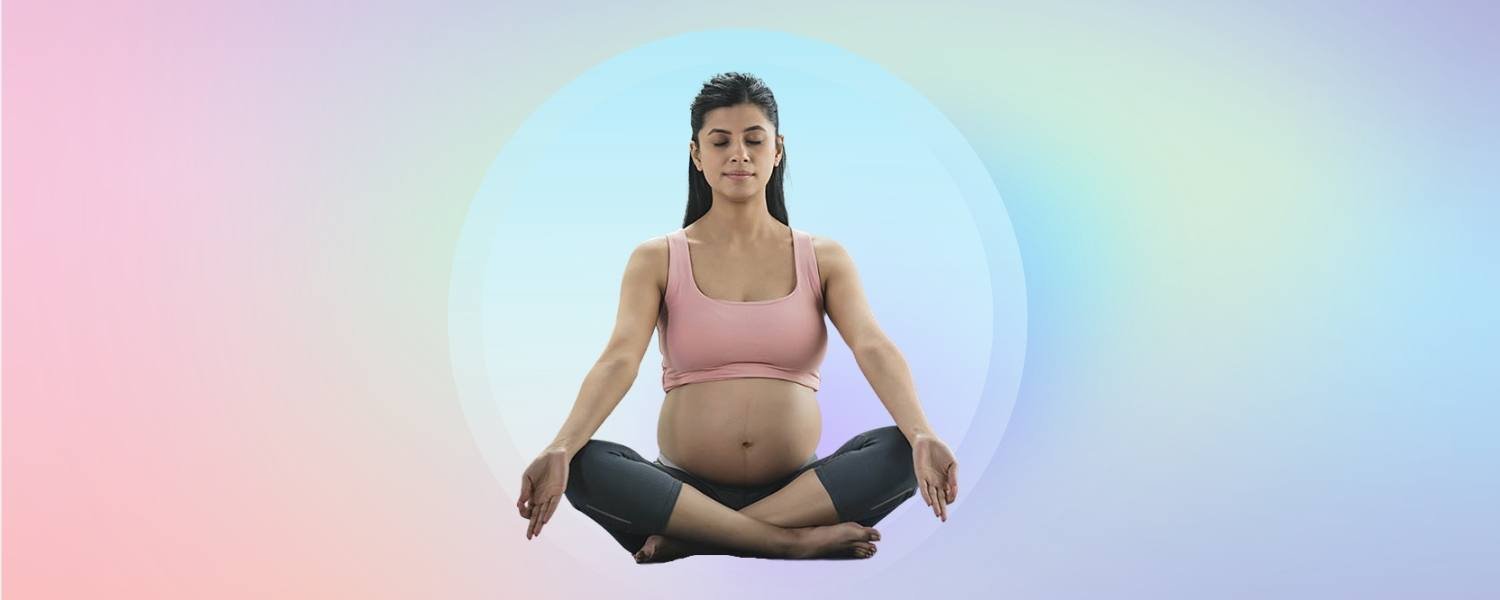Back Discomfort During Pregnancy
Back pain is one of the most prevalent complaints I hear in a prenatal yoga class at the Livfitt. However, because every body and pregnancy is unique, it does not always manifest in the same manner. Sometimes it manifests as a general discomfort across the band of the lower back, other times as acute or constant pain in the left or right lower back (typically SI joint pain), and occasionally as pain in the midback, upper back, and neck.
Fortunately, prenatal yoga allows us to resolve these various aches and pains!
Yoga: Addressing Prenatal Back Pain
Yoga is a great exercise regardless of pregnancy, but it is especially beneficial for pregnant women due to its gentle yet effective approach to back pain and overall health. The use of yoga’s lengthening and stretching can sometimes relieve back discomfort. Or perhaps it is the yoga postures and thorough breathing that alleviate back pain. Occasionally, it is the fortifying and balancing aspects of yoga that do the trick. Clearly, the numerous components of yoga can play a crucial role in addressing the entire body, but particularly the aches and pains of pregnancy.
Yoga Techniques for Pregnancy-Related Back Pain
Upper Back
When it comes to the upper back, these muscles tend to become excessively elongated due to the additional kyphosis (excessive outward curvature of the vertebrae, resulting in back hunching) that occurs as the shoulder rolls forward. To combat this, I implement scapula push-ups and other upper back strengthening poses such as camel and “seated updog” into my classes. By engaging the trapezius and upper back muscles, these yoga positions emphasize lifting and opening the torso.
SI Joint Pain
When it comes to SI joint discomfort (sacroiliac joints, located in the pelvis), we focus on improving pelvic balance and strengthening the supporting muscles. This implies that we perform a great deal of hip, glute, and hamstring strengthening poses. The following treatments are highly effective for SI joint pain:
- Dynamic lunges
- Utkatasana with a block squeezed between the quadriceps
- Downward-facing dog while holding a block between the quadriceps
- Bridge pose with a block in the space between the quadriceps
In Bridge pose, we emphasize elongating the sacrum to the knee creases while isometrically drawing the heels towards the shoulders. Because it engages the hamstrings, buttocks, and adductors, this exercise is extremely cost-effective.
Recommended Procedures and Postures for Prenatal Back Pain
Here are some of my favorite back-pain-relieving poses that I frequently incorporate into the rhythm of class:
- Rocking Cat & Cow: This variation of cat & cow emphasizes extending the lower back muscles.
- This pose provides the opportunity to lengthen the spinal muscles. The beauty of puppy pose is that it does not require the same shoulder opening as downward dog and it places minimal pressure on the palms and wrists. (a great option for people with carpal tunnel).
- Any side-bending stretch: Any side stretch relaxes the lower back muscles (particularly the QL or quadratus lumborum) and stretches the ribcage and intercostal muscles. This can provide some respite to those who are feeling “full of baby”
- This also serves to lengthen and release the QL. Start by placing your left hip on a blanket or bolster and your right hip on the floor. Raise your right pelvis slightly, then allow it to fall back down. (then repeat on the other side).
- Similar to puppy pose, downward-facing dog stretches the vertebrae and spinal muscles.
- You may be startled to see hamstring stretches on a list of back pain-relieving poses. Tight hamstrings can drag the pelvis into a more posterior tilt and limit pelvic mobility, resulting in overworked QL muscles.
- Dog Position with Side Stretch
- Falcon Arms
- Stitch the Needle
- 360 Chest-Expanding Breathing Poses (like Camel or Cactus Arms)
- Hip Strengtheners (check out this video for Hip Strengthener poses: Hip Strengtheners)
- This pose, which I coined “Deb’s Pyramid,” combines a wide-legged forward fold with a downward dog upper body.
- Figure 4 Pose: This pose is a class staple for those with SI (sacroiliac joint pain) because it stretches the piriformis, which can help alleviate the pain.
- Your Altering Body: Changing Back Pain During Pregnancy
As pregnancy progresses, the spine’s curves become more pronounced, causing the pelvic to assume a more anterior tilt, the upper back to round more, and the cervical spine (neck) to extend more. All of these factors can cause some muscles to shorten while others lengthen excessively and deteriorate.
Lower, Upper, and Middle Back
The lower back muscles tend to shorten and contract during pregnancy. Therefore, we employ poses that help restore the lower back’s length. Numerous cat-rocking poses, side stretches to relieve a tense QL muscle, and downward dog.
Scapula push-ups are used to strengthen these overly-elongated muscles in the middle back. However, we also seek thoracic rib mobility through poses such as thread the needle, upper back rotations, and eagle arms. We also focus on chest opening for the mid-back, as tight pectoral muscles can also contribute to upper back rounding.
Tightness in the upper back can also cause neck discomfort, so we like to focus on better alignment and breathing. We begin by balancing the weight on all four corners of the feet, then we move the thigh bones, which are typically pressed forward, backwards. The pelvis is then realigned. I frequently state, “pubis up and tail down, not under,” as a cue. Then, as we ascend the body, we attempt to stack the ribcage over the pelvis and raise the head, which is typically in a forward position.
Breathwork
Good breathing and attentive alignment go hand in hand. This is where I introduce the 360 Breathing technique, with an emphasis on breathing into the side and back ribcage. The number 360 refers to the 360-degree rib cage. Frequently, the majority of people are unable to exhale below their diaphragm or they force their breath into their abdomen. But by shifting the focus of breathing to the base of the ribs and specifically into the back and side ribs, we can promote diaphragmatic breathing and particularly get more movement into the stiff mid/upper back.
How We Can Treat Your Pregnancy-Related Back Pain
Prenatal Yoga Classes Online At Livfitt, we offer yoga classes for both pregnancy and postpartum, both in-studio for students and online for expectant yogis worldwide!
If you are interested in addressing back pain during pregnancy or learning more about how you and your expanding family can receive support during pregnancy, childbirth, and the postpartum period, please contact us or register for a class, workshop, or event today!



